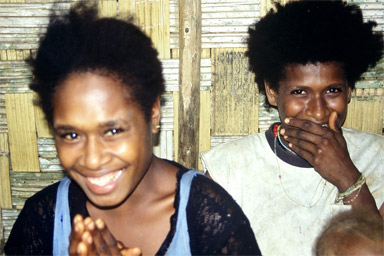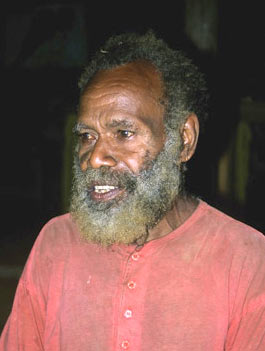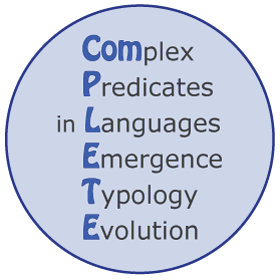

The area traditionally identified as Melanesia, in the southwestern Pacific, includes New Guinea, the Solomons, Vanuatu, New Caledonia and Fiji. This region shows an extreme cultural and linguistic diversity, with several hundreds of languages.
Some of these languages belong to the Austronesian family; as for the non-Austronesian languages of New Guinea and the Solomons, they are known under the cover term of “Papuan” languages.
In the middle of this vast area, the Republic of Vanuatu is home to approximately 106 distinct languages, for a population of 234,000 (2009 census). With only about 2000~2200 speakers per language, this country has the world's highest linguistic density per capita. The sheer number of these languages has two consequences:
- the description and documentation of all these languages will require the joint effort of many linguists, and several decades;
- these languages are spoken by small numbers of speakers: they are thus vulnerable to social changes, which can lead them quickly to situations of linguistic endangerment.
Through my work as a linguist, I hope to take part in this collective endeavour: understand, document and support the Melanesian languages of the Pacific Ocean. My personal contribution to the field takes the form of data collection on the languages spoken in the far northern Vanuatu (Torres & Banks islands), and far eastern Solomons (Vanikoro island, in Temotu province) – see more detail on my Fieldwork page.

Because these languages are not written and are spoken by small island communities, this means that I have spent a fair part of the last few years in the field. What I do is simply live with the people, share their daily activities, and get them to teach me their various languages. Once back home, I try to make sense of my handwritten notes and publish them, in order to share my findings from the field with the rest of the world's community of linguists. This can take the form of academic papers on specific points of these languages, or complete grammars and dictionaries.
Also, I try to make my research meaningful outside the world of academic linguists. This includes collaborating with non-linguists (anthropologists, archaeologists, ethnomusicologists…); sharing knowledge with a wider audience (e.g. via this website, or via documentaries and interviews); and making my expertise useful to the communities of speakers themselves – e.g. through the creation of booklets to promote vernacular literacy, or to keep the memory of traditional oral stories.
![]()

On this site, you will find some maps of the relevant archipelagoes, and see the detail of the individual languages on which I have done fieldwork. You can browse my fieldwork photos or videos, and access my audio archives. From my publications page, you can download my thesis, or my research papers. You may want to browse my online dictionary of Mwotlap (Banks Is, Vanuatu), or of Teanu (Vanikoro, Solomon Is.).
You can have a glimpse of traditional stories from the region, presented here in trilingual format – unless you prefer to discover the traditional music of Vanuatu by listening to our CD album.
If you can read French (icon ![]() in menus), you can also travel to Motalava, a small island of northern Vanuatu, and become familiar with the culture and language of the Motalava people. Or you can learn about the fate of the French navigator Lapérouse, who disappeared on the island of Vanikoro, one day of 1788.
in menus), you can also travel to Motalava, a small island of northern Vanuatu, and become familiar with the culture and language of the Motalava people. Or you can learn about the fate of the French navigator Lapérouse, who disappeared on the island of Vanikoro, one day of 1788.
Finally, you can find more links to other great websites to pursue your explorations further.
Enjoy your visit!

 I am based in Paris, in the research center LaTTiCe (Langues, Textes, Traitements informatiques, Cognition), linked with École Normale Supérieure, University Paris Sorbonne nouvelle, and CNRS (French National Center for Scientific Research), where my position is Directeur de recherche (Senior Research Fellow).
I am based in Paris, in the research center LaTTiCe (Langues, Textes, Traitements informatiques, Cognition), linked with École Normale Supérieure, University Paris Sorbonne nouvelle, and CNRS (French National Center for Scientific Research), where my position is Directeur de recherche (Senior Research Fellow).
→ See my profile on the LaTTiCe homepage.
 I am also a member of LabEx EFL “Empirical Foundations of Linguistics”, where I am co-convening two research groups: GL2 “Lexical typology across time and space” [with Lameen Souag (LaCiTO), Martine Vanhove (LLACAN)]; and GL7 “Reconstruction, genealogy, typology and grammatical description in the world’s two biggest phylums: Niger-Congo and Austronesian” [with Isabelle Bril (LaCiTO), Mark van de Velde (LLACAN)].
I am also a member of LabEx EFL “Empirical Foundations of Linguistics”, where I am co-convening two research groups: GL2 “Lexical typology across time and space” [with Lameen Souag (LaCiTO), Martine Vanhove (LLACAN)]; and GL7 “Reconstruction, genealogy, typology and grammatical description in the world’s two biggest phylums: Niger-Congo and Austronesian” [with Isabelle Bril (LaCiTO), Mark van de Velde (LLACAN)].
 During the period 2009-2012, I was also a Visiting Fellow in the Linguistics dept of the School of Culture, History and Language, at the Australian National University (A.N.U.), in Canberra. Since my return to France, I've become a Honorary Associate Professor there.
During the period 2009-2012, I was also a Visiting Fellow in the Linguistics dept of the School of Culture, History and Language, at the Australian National University (A.N.U.), in Canberra. Since my return to France, I've become a Honorary Associate Professor there.
→ See my profile on the ANU homepage.
 In 2022-2025, I am co-leading an ANR-DFG project on the typology of complex predicates, together with Martine Vanhove (LLACAN), Walter Bisang & Andrej Malchukov (Univ. Mainz, Allemagne). The project is called
In 2022-2025, I am co-leading an ANR-DFG project on the typology of complex predicates, together with Martine Vanhove (LLACAN), Walter Bisang & Andrej Malchukov (Univ. Mainz, Allemagne). The project is called
 “Complex Predicates in Languages: Emergence, Typology, Evolution”.
“Complex Predicates in Languages: Emergence, Typology, Evolution”.
 Since 2023, I've been leading a research project on dialexification, etymology and lexical change. This project, developed with Siva Kalyan (U. Queensland) & Mathieu Dehouck (LaTTiCe), is called “𝓔𝓿𝓸Sem: A database of dialexification across language families”.
Since 2023, I've been leading a research project on dialexification, etymology and lexical change. This project, developed with Siva Kalyan (U. Queensland) & Mathieu Dehouck (LaTTiCe), is called “𝓔𝓿𝓸Sem: A database of dialexification across language families”.
 As off 2025, I'm leading a scientific consortium named
As off 2025, I'm leading a scientific consortium named  “Héritages Linguistiques, Cultures orales, Éducation en Océanie”. This consortium, created with Jacques Vernaudon (Maison des Sciences de l'homme du Pacifique), Alejandrina Cristia (ENS–LSCP) and Marie Salaün (U. Paris-Cité), aims at documenting, analyzing and promoting the languages of the Pacific.
“Héritages Linguistiques, Cultures orales, Éducation en Océanie”. This consortium, created with Jacques Vernaudon (Maison des Sciences de l'homme du Pacifique), Alejandrina Cristia (ENS–LSCP) and Marie Salaün (U. Paris-Cité), aims at documenting, analyzing and promoting the languages of the Pacific.
You can download my ![]() résumé (CV, 2024).
résumé (CV, 2024).
My email address: < alexandre.francois - at - ens.psl.eu >.





